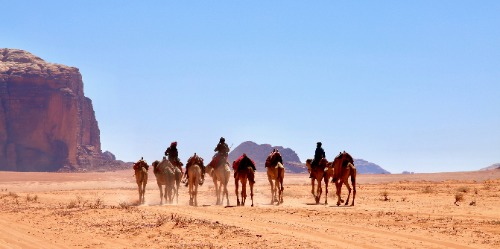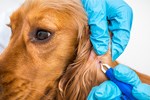Bloomsbury SET grant awarded to Dr Jackie Cardwell
Dr Jackie Cardwell, in collaboration with Dr Kerry Brown (LSHTM), Dr Mehroosh Tak (RVC), Dr Peter Holloway (RVC) and Professor Abdel Hakim Al Husban (Yarmouk University, Jordan) has been awarded a grant by The Bloomsbury SET to work on the project ‘Knowledge exchange through a Bedouin Lens: a photovoice exploration of camel owner perceptions of zoonotic disease risk’.
Zoonotic disease risk-mitigation efforts in Jordanian Bedouin populations are focused on hygiene interventions and vaccine development. Understanding context-specific social, cultural or practical barriers to implementation of interventions is crucial to intervention success. A particular challenge in this context is the relationship between people and camels, which are the reservoir for human Middle East respiratory syndrome coronavirus (MERS-CoV). Camels occupy a unique status in Bedouin Arab culture. Historically they have played a vital role in human survival in the desert. They are identified in the Qur’an as an example of God’s great power and wisdom, with Hadiths describing healing effects of drinking camels’ milk and urine. Camels are therefore viewed as uniquely ‘clean’ animals, incapable of transmitting infections to people, so close contact with camels or consumption of camel products is not perceived as a public health concern.
This project will use participatory photography (photovoice) to explore Jordanian Bedouin camel owners’ perspectives and practices relevant to zoonotic disease control and to initiate new dialogue between community members and researchers. Findings will contribute to informing development of culturally-appropriate messages and interventions.
Photovoice invites participants to become active co-researchers, collecting visual data representing their own perspectives to demonstrate community knowledge and practices through photography and subsequent collaborative discussions. As researchers are not directly involved in the gathering of photographic data, outputs are grounded in participants’ daily experiences. Increased understanding is achieved through discussion of selected photos, as a collaborative effort between researchers, participants and members of the participants’ community, capturing shared and conflicting or unexpected ideas.

You may also be interested in:
-
Cavapoo and Cockapoo designer dog breeds at high risk of tick infestation, study finds
The RVC’s VetCompass Programme reveals the dog breeds at most and least risk of tick infestation to …

